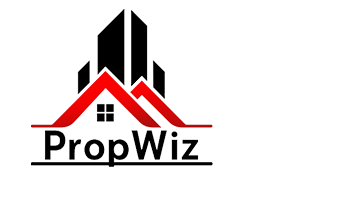
Property Jargon Decoded: A-Z of Real Estate Terms Every South African Buyer Should Know
Thursday, July 10, 2025

Buying a home can feel like learning a new language. Between OTPs, FICA, suspensive conditions, and transfer duties, the real estate world throws a lot of jargon your way - and most first-time buyers are expected to just know what it all means.
At PropWiz, we believe in real service and real explanations. That’s why we’ve broken down the most important South African property terms in plain, practical language - perfect for first-time buyers, students, and young professionals.
Let’s decode it all, from the basics to the behind-the-scenes.
The Basics You’ll Hear from Day One
These are the terms you’ll hear from the very start of your home-buying journey:
OTP (Offer to Purchase)
A legal agreement between the buyer and seller. Once both parties sign, it becomes binding - meaning the sale is officially on.
FICA (Financial Intelligence Centre Act)
To prevent fraud and money laundering, South African law requires agents and attorneys to verify your identity and address before the transaction.
Pre-qualification
A quick financial check with a bond originator or bank to see what loan amount you qualify for. It’s essential for budgeting before you shop.
Bond Originator
A professional who applies to several banks on your behalf to get the best home loan deal - for free. They make the process easier and more competitive.
Deposit
An upfront payment (usually 10%) of the purchase price. It lowers your loan amount and shows sellers that you’re serious.
Contracts & Conditions You Should Understand
Many property deals hinge on certain conditions or clauses. Understanding these terms can help you avoid costly mistakes:
Suspensive Condition (Subject To)
If a sale is subject to something (like bond approval or another property selling), it won’t go through unless that condition is met.
Occupation Date
This is the day the buyer is allowed to move in - which may be before or after the official registration at the Deeds Office.
Occupational Rent
If the buyer moves in before transfer, they pay the seller a monthly amount (like rent) until ownership is officially transferred.
Clearance Certificate
Issued by the municipality to confirm that all rates, taxes, and municipal accounts are paid in full. It’s a required step before registration.
Property Mandate
The agreement between a seller and an agent. A sole mandate means one agent can market the property. An open mandate allows multiple agents.
Understanding the Legal and Ownership Side
A lot happens behind the scenes when you buy a home. These are the players and documents involved:
Conveyancer
A property attorney who handles the legal process of transferring the home into the buyer’s name. They work closely with the bank and the Deeds Office.
Title Deed
The official legal document that proves who owns the property. After registration, it will list the buyer’s name.
Full Title vs Sectional Title
Full title means you own the house and the land. Sectional title means you own a unit within a shared complex or estate.
Levies
A monthly fee paid by sectional title owners to the body corporate for the upkeep of communal areas, security, and management.
Deeds Office
The government department that registers property transfers. It ensures legal ownership is properly recorded.
Finance Terms That Affect Your Bottom Line
The financial side of property can be overwhelming - but it doesn’t need to be.
Transfer Duty
A tax paid to SARS by the buyer. If the property costs less than R1.1 million, you don’t pay this duty. Over that threshold, it increases on a sliding scale.
Bond Registration
The process of registering your home loan with the Deeds Office. This is handled by attorneys and comes with a fee.
Bond Repayment Term
The number of years you’ll repay the loan - often 20 or 30 years. A longer term means lower monthly payments, but more interest overall.
Initiation Fee
A once-off amount that banks charge to start your bond. It’s usually added to the loan unless you choose to pay it upfront.
Prime Interest Rate
The base interest rate set by the Reserve Bank. It affects how much interest you’ll pay on your loan - the higher the rate, the more you’ll pay monthly.
Selling, Investing, and Thinking Ahead
Even if you’re not ready to sell yet, it’s helpful to understand the terms linked to future returns or second properties:
Capital Gains Tax (CGT)
If you sell a property for more than you paid, you might owe tax on the profit. This mostly applies to second homes or investment properties.
Estate Agent Commission
A percentage of the selling price paid by the seller to the estate agent for successfully marketing and closing the deal.
Property Evaluation
An estimate of what a home is worth - usually done by a real estate agent. It helps sellers set a market-related price and buyers decide on fair offers.
Property Valuation
A formal process typically done by a bank-appointed or independent valuer to determine the value of a home for bond approval or financial reporting.
Real Estate Doesn’t Have to Be Confusing
At PropWiz, we pride ourselves on making property transactions simpler and smarter - especially for first-time buyers. Whether you’re navigating a bond application, reading through your OTP, or just trying to figure out what “occupational rent” means, we’re here to help every step of the way.
You deserve answers, not jargon. And that’s where we come in.
Need help buying or selling property in Potchefstroom or Pretoria?
Contact PropWiz today - where the genius isn’t just in our name, it’s in everything we do.
Property Sales | Property Rentals | Commercial Property | Property Development | Pretoria Real Estate Market | PPRA Registered
PropWiz is a proud PPRA-registered real estate agency in South Africa, ensuring ethical and professional service.
#PropertyTermsSouthAfrica #OTPmeaninginproperty #PotchProperty #PretoriaProperty #FirstTimeBuyers #RealEstateDecoded #PropWizExplains
